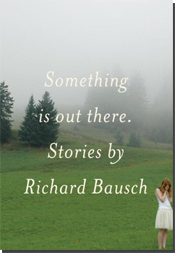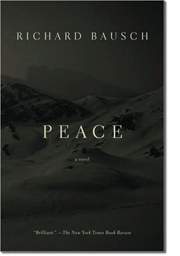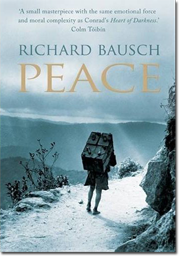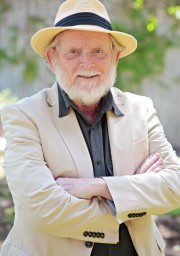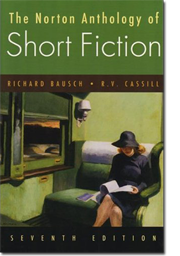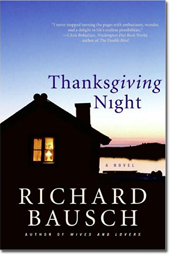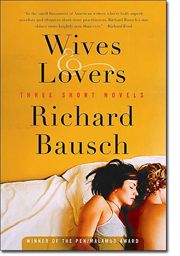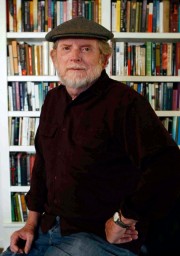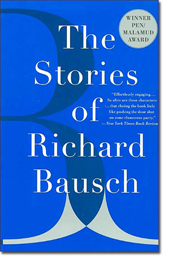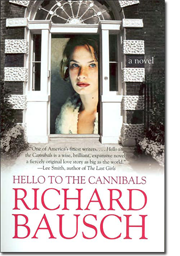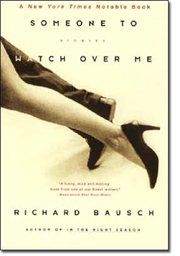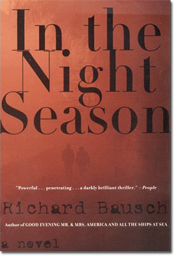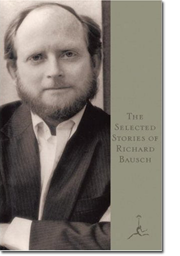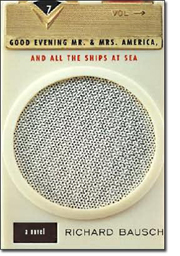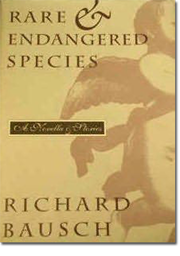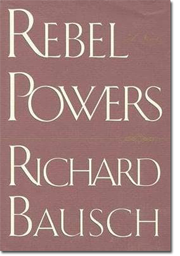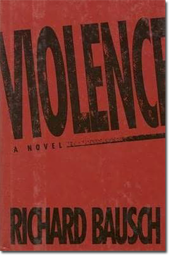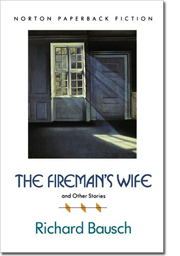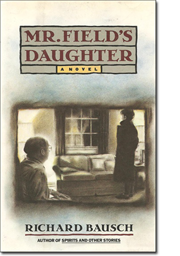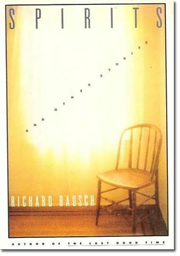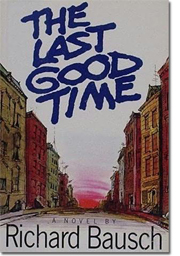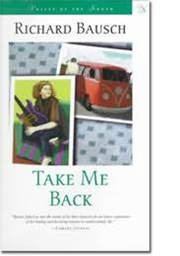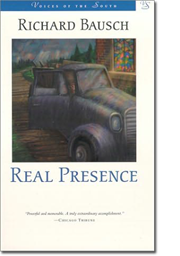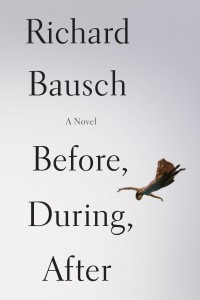Reviews
PEACE
“Embedded in a landscape at once bleak and beautiful, Richard Bausch’s Peace, like other classic war stories “The Naked and the Dead, The Things They Carried, the writings of Stephen Crane – discloses, in the sparest language, the spiritual darkness of war – the hunger for consolation, for a modest ration of love.” – The Oprah Magazine
“Peace is a great story; a great war story…a study of people caught in an unknown that is also inevitable…” – Eileen Battersby, The Irish Times
This is a narrative reminiscent of a John Ford documentary – men introduced, fully human, quixotic, and then removed by banal, fatal incident…Peace is a book of immense energy, tenderness and beauty” – A.L. Kennedy, The Guardian
“Every single word of Richard Bausch’s beautiful, spare new novel Peace rings darkly, tragically true.” – Richard Russo
“Richard Bausch’s Peace, set at the end of the Second World War in Italy, is a small masterpiece with the same emotional force and moral complexity as Conrad’s Heart of Darkness and Tolstoy’s Hadji Murad.” – Colm Toibin
“A short…brilliant one-act drama.” – The New York Times Book Review
“Peace adds something new to the great novels of conflict – All Quiet on the Western Front and For Whom the Bell Tolls – by capturing one of the essences of modern warfare: chasing enemy shadows.” – The London Times
AL Kennedy, The Guardian, acclaims a remarkable meditation on human nature and conflict
Richard Bausch is an extraordinary writer. For decades he has been producing taut, dark, funny, heartbreaking and mildly hypnotic prose – 11 novels, seven short-story collections, the occasional poem. He is a contemporary of Tobias Wolff and Richard Ford, was a friend of Raymond Carver, and shares their devastating concern for detail and domestic complexity, the ability to lay bare the convolutions, eccentricities, dangers and beauties of “ordinary” people. And yet, somehow, the UK doesn’t quite know him. Lauded and awarded in the United States, Bausch is simply yet another remarkable foreign author of whom readers – even connoisseurs of the short story – tend not to have heard. It’s our loss.
Peace, the first novel from a new Atlantic imprint launched by the author Colm Toibin and agent Peter Straus, may change all that. It is a dense, lyrical meditation on human nature and war, its prose pared back to the quotidian bone and then crafted into something resonant and piercing. It speaks to the current America of returning servicemen and relatives waiting at home, “oblivious to what was heading toward them across the awful curve of the world”. So one of the generation who examined the Vietnam conflict, a man who has studied and written about the US civil war, uses a story set in the second world war to confront the experience of combat. Here we find the intensity of a short story mingled with the broader canvas of a novel in a brief, stunning book.
It is 1944 and we are in Italy, in a landscape haunted by the mountainous slaughter of Cassino. “The fact was that the whole army seemed confused and not to know where its own soldiers were.” This is the boring, terrifying slog of war, of unthinkable thoughts, confusion, superstition; a lack of glory, or honour, or even of comradeship. Corporal Marson sets out on a vaguely defined patrol in foul weather – a trudge of rain, mud, climbing and snow. His field promotion sits uneasily and flickers in and out of mention, a delicate reflection of point of view. He is sometimes dogged, sometimes fatherly, sometimes burdened. He is accompanied by Joyner, a disconcertingly poetic bigot, and Asch, a cynical Jew – “it’s just gonna go on for ever or until they find some way to kill everybody”. For a brief moment “these two were, after all, the best friends a man could have”, but now Marson cannot stand Joyner’s hatreds and has detached himself from Asch because of the man’s nightmares left over from the desert campaign. Marson is permanently sickened and aching. He has just watched himself make his first close-range, indisputable kill: “the pale German with his bright red hair and his green eyes”. In the same incident, their sergeant, Glick, has shot an unarmed German whore. This unreported crime slowly festers with the men, eventually leading them to believe they may be cursed by it as they wander deeper and deeper into a wilderness of cold and death, and Marson passes through more and more intimate encounters with killing.
This is a narrative reminiscent of a John Ford documentary – men introduced, fully human, quixotic, and then removed by banal, fatal incident. Bausch’s men are pushed beyond sanity to the point where they are animal, selfish, and then simply objects, either moving or still. At one point Marson calls, “It’s me” – “and felt as though he had lied.” Marson is a good man, a Catholic, who does bad things in a situation which makes them inevitable. He tramps with his companions through “a kind of grey, lifeless suspension” illuminated with moments of sharp wonder or beauty. At one point, the soldiers, still awaiting action, perceive sea breezes that “seem dimly wrong even as they also felt unbearably precious”, while the night sky can be a sudden wonder, distant and clean.
As they walk, Marson and his men worry away at their complicity in the whore’s shooting – is she guilty, is Glick, are they? The justification for her murder is that she would have killed them if she could. The fact that she dies for a crime of intention, of thought, gives the book a further modern resonance. Asch, whose uncle is a policeman, states: “Glick’s a killer … We’re soldiers. He’s a killer.” But this is clearly a book in which such distinctions have become meaningless. We are in a universe of complex and conflicting moralities, where an enemy agent can save your life; where an anti-semite can be shocked as he listens helplessly to the execution of Jews. And this sense of helpless witnessing – of staring at murders, deaths, wounds, pains, wrongs – suffuses the book. The fog of war irrevocably conjures up the unseeable and renders it unforgettable.
Yet, despite its grim subject matter, Peace is a book of immense energy, tenderness and beauty. The men’s humour and humanity are enticing; Bausch knows when to keep up the tension, push towards hurt, and when to change tack, allow a pause, a respite. His handling of his protagonists combines a surgeon’s detachment with a father’s care; the characters go where they must, but are observed with a wounded anger, a passion that propels the narrative and underlies the deft descriptions. At the book’s conclusion, Bausch offers us an appropriately furious and complicated moment of layered tension, before leaving the suggestion of the nightmares to come.
This is a remarkable piece of work: emotionally intelligent, psychologically acute, gripping and honest, with Marson at its heart, a wonderfully realised and haunting figure. He is a man who carries “the sense, again without words, that life – all life, the life he had led and the life he had come to – had never been so suffused with clarity, a terrible inhuman clarity, made utterly out of precision, like the precision of gear and tackle in a machine. Except that he understood, in a sick wave, that this was utterly and only human.”
